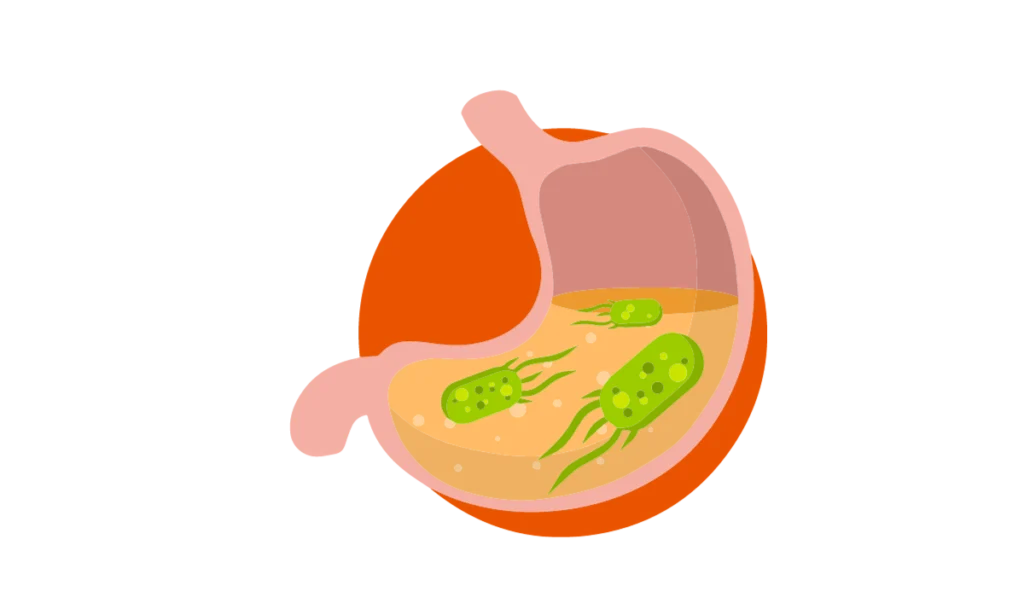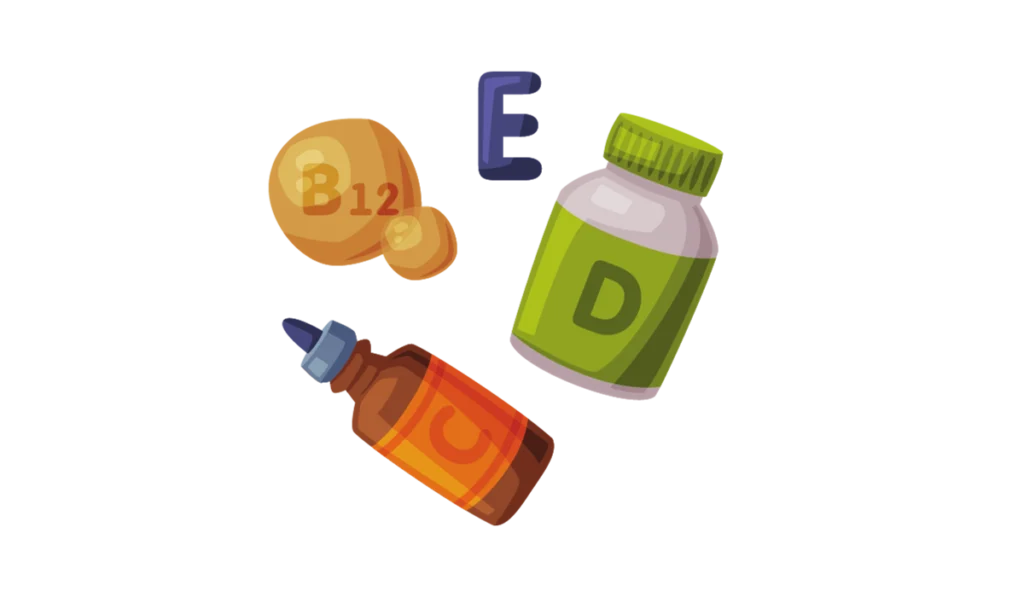6 Reasons Why VSL#3 is Ideal for Irritable Bowel Syndrome
Discover the top 6 reasons why VSL#3 is the perfect solution for managing Irritable Bowel Syndrome (IBS). Learn how to improve your gut health!

In This Article:
Key Points
- VSL#3, a blend of beneficial bacteria, has shown promise in treating IBS in both children and adults.
- The VSL#3 probiotic has a positive impact on the gut microbiome, potentially alleviating IBS symptoms.
- Studies suggest that VSL#3 may alter gut microbial composition, replacing or modifying bacteria in the gut.
- The link between VSL#3 and improvements in gastrointestinal permeability is a notable area of study.
- Larger randomized trials are needed to validate the potential benefits of VSL#3 in managing IBS symptoms.
- The study provides crucial insights into the intricate relationship between probiotics, the gut microbiome, and IBS symptoms.
Probiotics in the Treatment of Irritable Bowel Syndrome
Irritable bowel syndrome affects individuals across all age groups, significantly impacting their quality of life
The understanding of IBS has significantly evolved over the past few decades.
Initially thought to be caused by abnormalities in gut smooth muscle and central nervous system hypervigilance, recent research has expanded to include both central and peripheral mechanisms in the pathophysiology of IBS A Trusted Source Chey WD, Kurlander J, Eswaran S. Irritable bowel syndrome: a clinical review. JAMA. (2015) 313:949-58. doi: 10.1001/jama.2015.0954 PubMed AbstractCrossRef Full TextGoogle Scholar A Trusted Source Sperber AD, Dumitrascu D, Fukudo S, Gerson C, Ghoshal UC, Gwee KA, et al. The global prevalence of IBS in adults remains elusive due to the heterogeneity of studies: a Rome Foundation working team literature review. Gut. (2017) 66:1075-82. doi: 10.1136/gutjnl-2015-311240 PubMed AbstractCrossRef Full TextGoogle Scholar.

This includes factors such as abnormal colonic transit, intestinal irritants, changes in the gut microbiome, enteroendocrine cell dysfunction, and bile acid malabsorption A Trusted Source Camilleri M. Peripheral mechanisms in irritable bowel syndrome. N Engl J Med. (2013) 368:578-9. doi: 10.1056/NEJMc1214185 PubMed AbstractCrossRef Full TextGoogle Scholar A Trusted Source Camilleri M. Advances in understanding of bile acid diarrhea. Exp Rev Gastroenterol Hepatol. (2014) 8:49-61. doi: 10.1586/17474124.2014.851599 PubMed AbstractCrossRef Full TextGoogle Scholar.
A notable area of study in IBS treatment is the alteration in gut microbiome composition and the metabolites produced by microbial metabolism, such as bile acids A Trusted Source Simren M, Barbara G, Flint HJ, Spiegel BM, Spiller RC, Vanner S, et al. Intestinal microbiota in functional bowel disorders: a Rome foundation report. Gut. (2013) 62:159-76. doi: 10.1136/gutjnl-2012-302167 PubMed AbstractCrossRef Full TextGoogle Scholar A Trusted Source Slattery SA, Niaz O, Aziz Q, Ford AC, Farmer AD. Systematic review with meta-analysis: the prevalence of bile acid malabsorption in the irritable bowel syndrome with diarrhoea. Aliment Pharmacol Ther. (2015) 42:3-11. doi: 10.1111/apt.13227 PubMed AbstractCrossRef Full TextGoogle Scholar.
Probiotics have shown promise in treating IBS in both children and adults, with VSL#3 being a specific probiotic with evidence of efficacy based on randomized trials A Trusted Source Simren M, Barbara G, Flint HJ, Spiegel BM, Spiller RC, Vanner S, et al. Intestinal microbiota in functional bowel disorders: a Rome foundation report. Gut. (2013) 62:159-76. doi: 10.1136/gutjnl-2012-302167 PubMed AbstractCrossRef Full TextGoogle Scholar A Trusted Source Wong RK, Yang C, Song GH, Wong J, Ho KY. Melatonin regulation as a possible mechanism for probiotic (VSL#3) in irritable bowel syndrome: a randomized double-blinded placebo study. Dig Dis Sci. (2015) 60:186-94. doi: 10.1007/s10620-014-3299-8PubMed AbstractCrossRef Full TextGoogle Scholar.
However, the exact mechanism by which probiotics benefit IBS patients remains unclear.
Some studies suggest that probiotics alter the gut microbial composition, essentially replacing or modifying the bacteria in the gut A Trusted Source Yoon JS, Sohn W, Lee OY, Lee SP, Lee KN, Jun DW, et al. Effect of multispecies probiotics on irritable bowel syndrome: a randomized, double-blind, placebo-controlled trial. J Gastroenterol Hepatol. (2014) 29:52-9. doi: 10.1111/jgh.12322 PubMed AbstractCrossRef Full TextGoogle Scholar.
Other studies have reported varying results regarding the effects of VSL#3 on gut microbiota composition, potentially due to differences in treatment duration or other factors A Trusted Source Kim SE, Choi SC, Park KS, Park MI, Shin JE, Lee TH, et al. Change of fecal flora and effectiveness of the short-term VSL#3 probiotic treatment in patients with functional constipation. J Neurogastroenterol Motil. (2015) 21:111-20. doi: 10.5056/jnm14048 PubMed AbstractCrossRef Full TextGoogle Scholar.
Additionally, increased gut permeability may be related to abdominal pain in some IBS patients, but it is unknown if VSL#3 affects gut permeability A Trusted Source Zhou Q, Zhang B, Verne GN. Intestinal membrane permeability and hypersensitivity in the irritable bowel syndrome. Pain. (2009) 146:41-6. doi: 10.1016/j.pain.2009.06.017 PubMed AbstractCrossRef Full TextGoogle Scholar A Trusted Source Shulman RJ, Eakin MN, Czyzewski DI, Jarrett M, Ou CN. Increased gastrointestinal permeability and gut inflammation in children with functional abdominal pain and irritable bowel syndrome. J Pediatr. (2008) 153:646-50. doi: 10.1016/j.jpeds.2008.04.062 PubMed AbstractCrossRef Full TextGoogle Scholar.
While probiotics are generally considered safe, the risk/benefit ratio of using probiotics to treat IBS has been questioned A Trusted Source Bennett WE Jr. Quantitative risk-benefit analysis of probiotic use for irritable bowel syndrome and inflammatory bowel disease. Drug Saf. (2016) 39:295-305. doi: 10.1007/s40264-015-0349-x PubMed AbstractCrossRef Full TextGoogle Scholar.
No study has specifically focused on the potential side effects of VSL#3 in adult IBS patients.
In previous clinical trials, the reporting of adverse events was unclear A Trusted Source Guandalini S, Magazzu G, Chiaro A, La Balestra V, Di Nardo G, Gopalan S, et al. VSL#3 improves symptoms in children with irritable bowel syndrome: a multicenter, randomized, placebo-controlled, double-blind, crossover study. J Pediatr Gastroenterol Nutr. (2010) 51:24-30. doi: 10.1097/MPG.0b013e3181ca4d95 PubMed AbstractCrossRef Full TextGoogle Scholar A Trusted Source Michail S, Abernathy FW, Harshavadran K, Stolfi A. VSL#3 use in a double-blinded, placebo-controlled pilot trial in diarrhea-predominant irritable bowel syndrome. Gastroenterology. (2010) 138:S230. doi: 10.1016/S0016-5085(10)61045-1 CrossRef Full TextGoogle Scholar
, although no significant adverse events were reported when the related probiotic VisBiome was administered to autistic children with functional gastrointestinal disorders A Trusted Source Arnold LE, Luna RA, Williams K, Chan J, Parker RA, Wu Q, et al. Probiotics for gastrointestinal symptoms and quality of life in autism: a placebo-controlled pilot trial. J Child Adolesc Psychopharmacol. (2019) 29:659-69. doi: 10.1089/cap.2018.0156 PubMed AbstractCrossRef Full TextGoogle Scholar.
This article aims to examine the impact of VSL#3 on adults with IBS.
A Closer Look at VSL#3
The VSL#3 probiotic is a powerhouse blend of beneficial bacteria, including four strains of Lactobacillus, three strains of Bifidobacterium, one strain of Streptococcus thermophilus, and starch A Trusted Source Mattarelli P, Bonaparte C, Pot B, Biavati B. Proposal to reclassify the three biotypes of Bifidobacterium longum as three subspecies: Bifidobacterium longum subsp. longum subsp. nov., Bifidobacterium longum subsp. infantis comb. nov. and Bifidobacterium longum subsp. suis comb. nov. Int J Sys Evolution Microbiol. (2008) 58:767-72. doi: 10.1099/ijs.0.65319-0 PubMed AbstractCrossRef Full TextGoogle Scholar.
In a clinical trial, participants took two packets daily, equivalent to 900 billion CFU, for either 4 or 8 weeks.

This potent mix was consumed mixed in cold food or a non-carbonated beverage.
Notably, B. infantis and B. longum, previously classified as separate species, are now considered subspecies of the same organism, and Lactobacillus bulgaricus in VSL#3 has been reclassified as L. helveticus A Trusted Source Mattarelli P, Bonaparte C, Pot B, Biavati B. Proposal to reclassify the three biotypes of Bifidobacterium longum as three subspecies: Bifidobacterium longum subsp. longum subsp. nov., Bifidobacterium longum subsp. infantis comb. nov. and Bifidobacterium longum subsp. suis comb. nov. Int J Sys Evolution Microbiol. (2008) 58:767-72. doi: 10.1099/ijs.0.65319-0 PubMed AbstractCrossRef Full TextGoogle Scholar.
VSL#3 Probiotics on Irritable Bowel Syndrome: A Comprehensive Study
Introduction
A study conducted between January 2011 and January 2014, with 77 individuals screened and 21 enrolled, investigated the safety and impact of the VSL#3 probiotic on individuals with Irritable Bowel Syndrome A Trusted Source Boonma, Prapaporn, et al. Probiotic VSL#3 Treatment Reduces Colonic Permeability and Abdominal Pain Symptoms in Patients With Irritable Bowel Syndrome. Frontiers in Pain Research, vol. 2, Sept. 2021.[Frontier].
Pain and Stool Diaries
The study analyzed the number of pain episodes, mean pain rating, and maximum pain rating per day, both before and after VSL#3 administration.
The results showed significant decreases in the number of pain episodes and maximum pain rating, demonstrating the potential benefits of VSL#3 in alleviating pain associated with IBS.
Microbiome Analysis
The microbiome analysis revealed that the VSL#3 probiotic, composed of various bacterial strains, positively impacted the gut microbiome.
Whole Genome Shotgun Sequencing was used to analyze the presence and abundance of VSL#3 bacterial strains in participants’ stool samples.
The results showed an increase in the relative abundance of several VSL#3-related species after treatment, with B. animalis and S. thermophilus being highly enriched.
Gastrointestinal Permeability
Colonic permeability, measured as percent sucralose recovery, showed a positive trend with the number of pain episodes, although statistical significance was not achieved.
However, colonic permeability decreased significantly after 8 weeks of VSL#3 treatment, suggesting a potential link between probiotic treatment duration and improvements in gastrointestinal permeability.
Bile Acids
While bile acid profiles did not show significant changes post-probiotic treatment, the study identified trends that warrant further exploration.
Notably, unconjugated secondary bile acids were negatively associated with colonic permeability, whereas primary bile acids were positively associated with stool type.
Adverse Events
The study reported no deaths, infections, or unscheduled IBS-related healthcare visits during the trial.
A total of 88 adverse events were reported, with bloating being the most common. However, all AEs were rated as not serious and were deemed unrelated to VSL#3.
Serious Adverse Events
Two serious adverse events were reported on the same subject, both unrelated to the VSL#3 probiotic.
The SAEs were due to vaginal bleeding caused by uterine fibroids.
The study highlights the potential benefits of VSL#3 in alleviating pain associated with IBS and improving gastrointestinal permeability.
The positive impact on the gut microbiome further supports the use of probiotics in managing IBS symptoms.
However, larger randomized trials are needed to validate these findings and explore the identified trends in more detail.
Probiotics and Irritable Bowel Syndrome : Insights from VSL#3
The study delves into the intricate relationship between probiotics and the gut microbiome of individuals suffering from IBS, with a focus on the effects of VSL#3.
This probiotic has previously demonstrated efficacy in ameliorating IBS symptoms in both adults and children through double-blind, randomized trials A Trusted Source Guandalini S, Magazzu G, Chiaro A, La Balestra V, Di Nardo G, Gopalan S, et al. VSL#3 improves symptoms in children with irritable bowel syndrome: a multicenter, randomized, placebo-controlled, double-blind, crossover study. J Pediatr Gastroenterol Nutr. (2010) 51:24-30. doi: 10.1097/MPG.0b013e3181ca4d95 PubMed AbstractCrossRef Full TextGoogle Scholar.
Key Findings
Microbiome Analysis
The comprehensive analysis utilized Whole Genome Shotgun Sequencing to decipher the intricate dynamics of the gut microbiome post-VSL#3 administration.
This approach revealed significant correlations between certain probiotic species, such as L. plantarum, L. casei subsp. paracasei, B. animalis, and S. thermophilus, and a reduction in the frequency of pain episodes.
These species also exhibited trends towards reduced colonic permeability A Trusted Source Zhou Q, Zhang B, Verne GN. Intestinal membrane permeability and hypersensitivity in the irritable bowel syndrome. Pain. (2009) 146:41-6. doi: 10.1016/j.pain.2009.06.017 PubMed AbstractCrossRef Full TextGoogle Scholar A Trusted Source Mennigen R, Nolte K, Rijcken E, Utech M, Loeffler B, Senninger N, et al. Probiotic mixture VSL#3 protects the epithelial barrier by maintaining tight junction protein expression and preventing apoptosis in a murine model of colitis. Am J Physiol Gastrointest Liver Physiol. (2009) 296:G1140-9. doi: 10.1152/ajpgi.90534.2008 PubMed AbstractCrossRef Full TextGoogle Scholar.
Gastrointestinal Permeability
The study marks a significant stride in understanding the potential link between probiotics and gastrointestinal permeability, a connection that has remained largely unexplored in adults with IBS.
Animal studies have suggested that VSL#3 administration may reduce gut permeability, possibly through various molecular mechanisms A Trusted Source Camilleri M, Lasch K, Zhou W. Irritable bowel syndrome: methods, mechanisms, and pathophysiology. The confluence of increased permeability, inflammation, and pain in irritable bowel syndrome. Am J Physiol Gastrointest Liver Physiol. (2012) 303:G775-85. doi: 10.1152/ajpgi.00155.2012 PubMed AbstractCrossRef Full TextGoogle Scholar A Trusted Source Mennigen R, Nolte K, Rijcken E, Utech M, Loeffler B, Senninger N, et al. Probiotic mixture VSL#3 protects the epithelial barrier by maintaining tight junction protein expression and preventing apoptosis in a murine model of colitis. Am J Physiol Gastrointest Liver Physiol. (2009) 296:G1140-9. doi: 10.1152/ajpgi.90534.2008 PubMed AbstractCrossRef Full TextGoogle Scholar .

Bile Acids and Abdominal Pain
These findings underscore the possible role of bile acids in modulating abdominal pain and colonic permeability in IBS patients.
While the study did not yield statistically significant results, it did reveal trends that warrant further exploration in larger trials.
Bile acids, particularly taurochenodeoxycholic acid, were associated with increased abdominal pain and colonic permeability, indicating a potential protective mechanism of VSL#3 in mitigating these symptoms A Trusted Source Dior M, Delagreverie H, Duboc H, Jouet P, Coffin B, Brot L, et al. Interplay between bile acid metabolism and microbiota in irritable bowel syndrome. Neurogastroenterol Motil. (2016) 28:1330-40. doi: 10.1111/nmo.12829 PubMed AbstractCrossRef Full TextGoogle Scholar.
The study, albeit limited by its sample size and open trial design, provides crucial insights into the potential benefits of VSL#3 in managing IBS symptoms.
The correlation between the abundance of probiotic organisms and the alleviation of abdominal pain is a promising avenue for future research.
The findings lay the groundwork for more rigorous, double-blind randomized controlled trials to further validate the therapeutic potential of VSL#3 in treating IBS, while controlling for placebo effects commonly observed in IBS patients A Trusted Source Hegde S, Lin YM, Fu Y, Savidge T, Shi XZ. Precision Lactobacillus reuteri therapy attenuates luminal distension-associated visceral hypersensitivity by inducing peripheral opioid receptors in the colon. Pain. (2020) 161:2737-49. doi: 10.1097/j.pain.0000000000001967 PubMed AbstractCrossRef Full TextGoogle Scholar.
Discussion
- VSL#3 has demonstrated promise in treating IBS symptoms in both children and adults.
- The probiotic has a positive impact on the gut microbiome, potentially leading to symptom relief.
- Studies suggest that VSL#3 may alter the gut microbial composition, replacing or modifying bacteria.
- There is a potential link between VSL#3 and improvements in gastrointestinal permeability.
- Larger randomized trials are necessary to validate the benefits of VSL#3 in managing IBS symptoms.
Conclusion
- The study provides valuable insights into the relationship between probiotics, the gut microbiome, and IBS symptoms.
- The potential benefits of VSL#3 in alleviating IBS symptoms are promising, but further research is needed.
- The findings lay the groundwork for more rigorous, double-blind randomized controlled trials to validate the therapeutic potential of VSL#3 in treating IBS.
- The correlation between the abundance of probiotic organisms and the alleviation of abdominal pain is a promising avenue for future research.
Review date not set.
How we reviewed this article:
Latest on:





